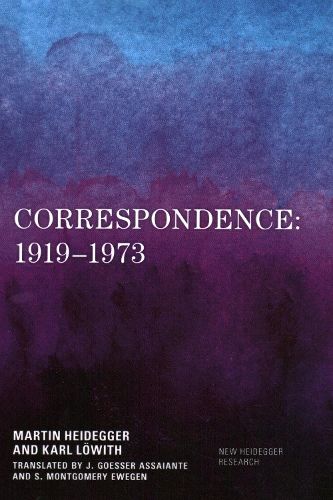Readings Newsletter
Become a Readings Member to make your shopping experience even easier.
Sign in or sign up for free!
You’re not far away from qualifying for FREE standard shipping within Australia
You’ve qualified for FREE standard shipping within Australia
The cart is loading…






This volume consists of over one-hundred epistolary exchanges between Martin Heidegger and one of his earliest students, Karl Loewith, who became a renowned and accomplished philosopher in his own right. The letters span a period of just over fifty years and range from casual to philosophical in tone. The more philosophically oriented letters shed important light on the ideas and writings of both Heidegger and Loewith, while the more casual letters provide insight into Heidegger the teacher, the man, and the friend, as well as into Loewith the devoted but reflectively critical student. By providing previously untranslated materials, this volume contributes to a greater understanding of the lives and the work of these two crucially important philosophers. Additionally, through the various bibliographical and cultural details that are disclosed along the way, this volume contributes to a greater understanding of German intellectual and cultural history during the span of its most challenging and devastating years.
$9.00 standard shipping within Australia
FREE standard shipping within Australia for orders over $100.00
Express & International shipping calculated at checkout
This volume consists of over one-hundred epistolary exchanges between Martin Heidegger and one of his earliest students, Karl Loewith, who became a renowned and accomplished philosopher in his own right. The letters span a period of just over fifty years and range from casual to philosophical in tone. The more philosophically oriented letters shed important light on the ideas and writings of both Heidegger and Loewith, while the more casual letters provide insight into Heidegger the teacher, the man, and the friend, as well as into Loewith the devoted but reflectively critical student. By providing previously untranslated materials, this volume contributes to a greater understanding of the lives and the work of these two crucially important philosophers. Additionally, through the various bibliographical and cultural details that are disclosed along the way, this volume contributes to a greater understanding of German intellectual and cultural history during the span of its most challenging and devastating years.